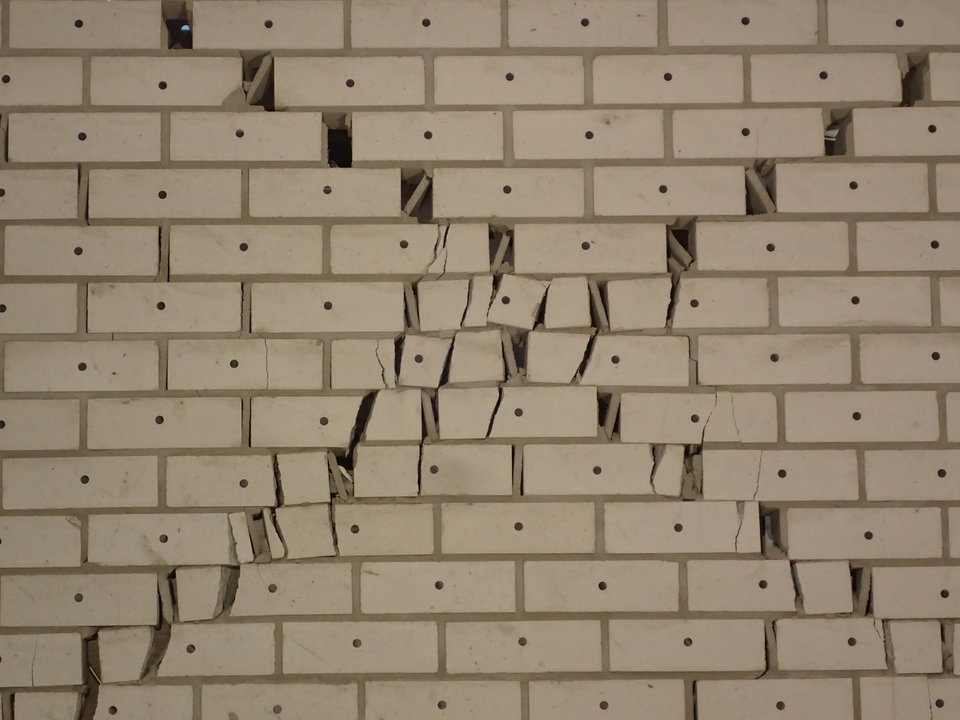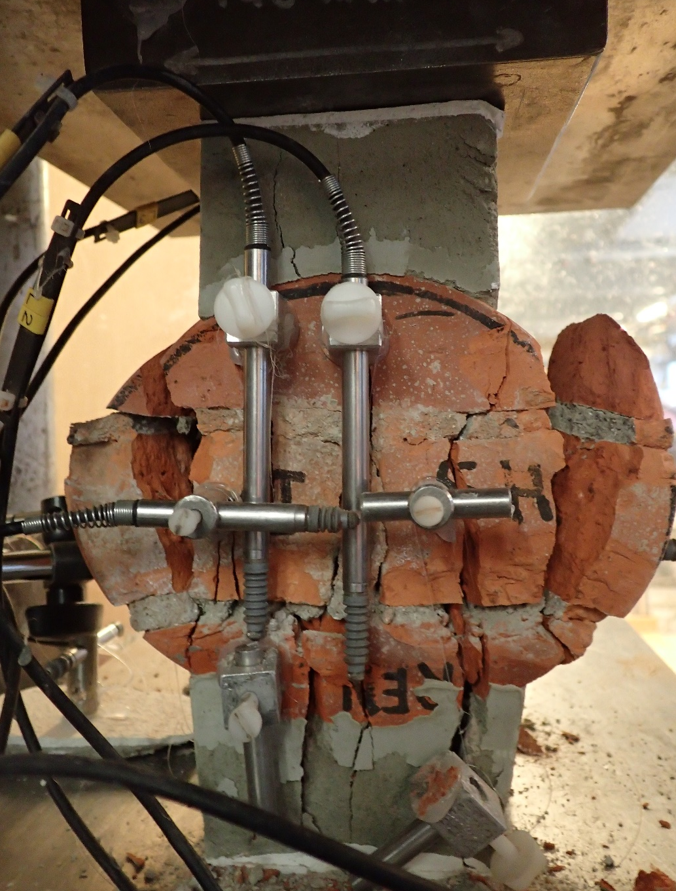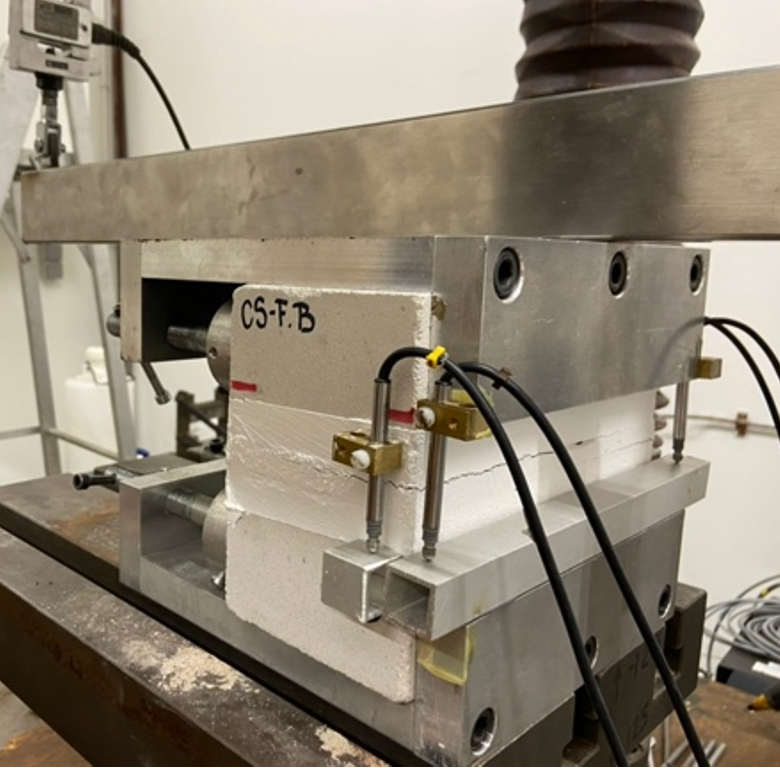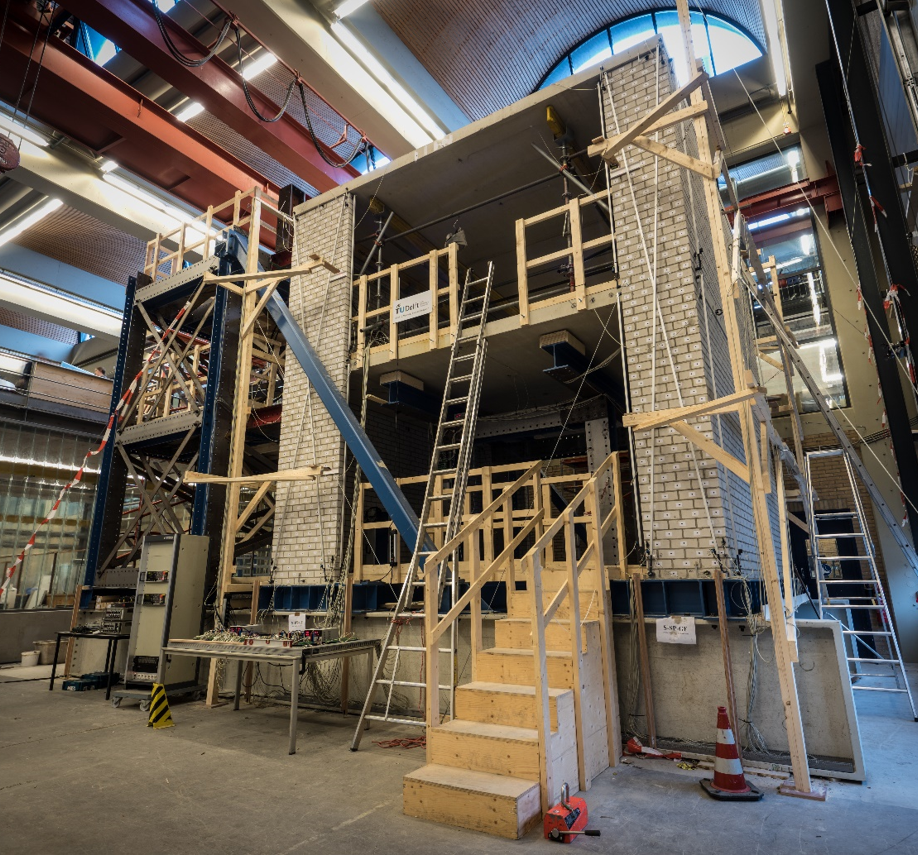Structural Mechanics
Profile
Safety, resilience and sustainability are crucial aspects for civil and building engineering structures. The Structural Mechanics group contributes by developing advanced computational models for simulating the failure behaviour of masonry and reinforced concrete structures. Examples are constitutive crack-crush models and robust solution procedures within nonlinear finite and discrete element analysis. We subsequently utilize the models to study hidden reserves in existing structures (e.g. masonry quay walls and bridges), safety of buildings under induced earthquakes in the region of Groningen, and forecasting and mitigating cracking damage from mining or climate action. We realize a strong relationship with sector partners and provide guidelines and recommendations for practice.
A major challenge is to confront, validate and calibrate the models to lab tests and monitoring data. To this end, the group has established the Masonry lab since 2015, capable of performing high-resolution tests at multiple scales.
The group enjoys teaching the basics of Structural Mechanics to civil engineers and actively participates in tracks for Structural, Building and Materials engineering of the MSc programme Civil Engineering.
Research projects
Education
The Structural Mechanics group offers several courses in the programme of Civil Engineering, both at the bachelor and master level. The students are encouraged to learn the basic principle of mechanics of material and structures as well as their use in modern finite element analyses.
The courses led by our team members or in which we contributed are listed below.
BSc courses
MSc courses
Electives
Thesis
Masonry Lab
The Masonry lab was established by the Structural Mechanics group in 2015. It operates as an integral component of the Macrolab, leveraging the expertise of a proficient support staff.
At the core of its mission, the Masonry Lab is dedicated to conducting multiscale investigations, meticulously scrutinizing fracture processes within masonry materials and discerning their consequential effects on structural performances. Rigorous testing procedures are employed to systematically characterize material behaviour and assess the performance metrics of both individual structural elements and entire buildings.
The scope of the laboratory's research extends to the nonlinear behaviour of masonry, encompassing the determination of elastic, strength, and toughness properties across a diverse spectrum of unreinforced brick, block, and element masonry. Additionally, the lab pioneers the exploration of innovative, minimally invasive techniques for evaluating these properties in-situ for existing buildings and infrastructures.
Furthermore, the Masonry Lab carries out comprehensive full-scale tests on walls and buildings, providing a rigorous evaluation of structural performances. The laboratory's purview extends to the meticulous examination of strengthening and repair methodologies, including but not limited to bed joint reinforced repointing and self-healing repointing mortar.
In the realm of monitoring, the Masonry Lab embraces advanced techniques, exemplified by the refinement and adoption of Digital Image Correlations. This sophisticated methodology ensures precise monitoring of crack propagation during testing scenarios.
Central to the lab's initiatives are experimental investigations to support decision-making processes for the maintenance of existing structures and infrastructures. This includes furnish benchmarks for validating structural analysis methodologies, but also contribute to a strategic framework for in-situ material characterisation.
For further information please contact Rita Esposito.
The Masonry lab is part of the Macrolab and thus of the Stevin Laboratory: Micro2Macro a NWO Large-Scale Scientific Infrastructure.
Team
- Jan Rots
- Rita Esposito
- Francesco Messali
- P.C.J. Hoogenboom
- S. Sharma
- O. Arslan
- G. Cera
- M.B. Gaggero
- A. Ghezelbash
- Paul Korswagen
- N.W. Kostense
- Yopi Oktiovan
- Alfonso Prosperi
- P. Rios
- M. Sousamli



